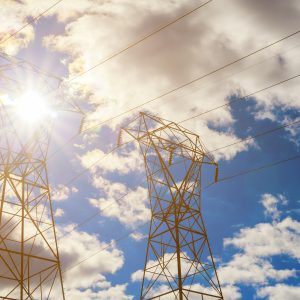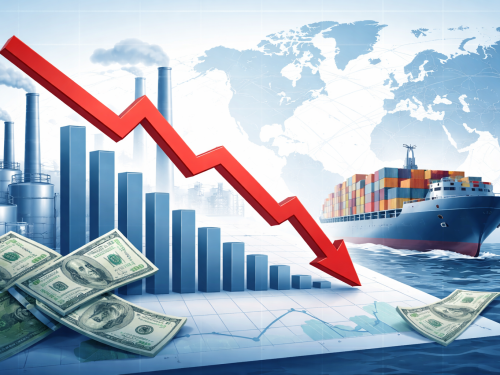News
Share on
Marco Ravazzolo, director of the Environment, Energy and Mobility Policy Area, spoke at a hearing at the Environment and Production Activities Committees of the Chamber of Deputies on Decree-Law No. 181 of 9 December 2023 on urgent provisions for the energy securitythe promotion of renewable sourcessupport for energy-intensive businesses and in the area of reconstruction in areas affected by flooding.
Overall, Confindustria expresses appreciation for the measure, as it contributes to addressing all three relevant dimensions of energy, namely decarbonisation, competitiveness and security of supply, in line with our proposals. In fact, the decree contains provisions on energy and gas release, energy production from renewable sources and the expansion of energy infrastructure that go in the right direction.
First of all, it should be noted that energy markets are largely following the development of commodity prices, which, starting in the first half of 2023, have generally seen marked declines from the peaks reached in 2022. In particular, gas prices natural in the main European hubs averaged around 40 €/MWh. Despite the sharp fall, the price differential between the European market and the producer countries remains highsuch as North Africa, the Middle East, Turkey and the United States. As for electricity, the price differential between Italy and abroad strengthens in November. Differential that will continue to remain high, also looking at the 2024 and 2025 futures prices. As for the gas, on the other hand, although prices have fallen since 2022, we are still facing high costs compared to 2019. In this setting, the ones who suffer most are the energy intensive enterpriseswhich represent the basic sectors of our industry from which all of our country's production chains flow and which are exposed to international competition, are at risk of relocation due to uncompetitive energy costs.
For these reasons, we supported the approval of the measures contained in the first two articles of the measure, namely energy release and gas release. These are structural measures that go beyond the logic of emergency interventions, which are costly and borne by the public budget. These measures, therefore, must in no way be weakened or distorted in the course of the decree's conversion. It is crucial to concentrate all efforts now to ensure that they are operational as early as the beginning of 2024, also by means of clarifications and specifications to be made mostly in the implementation decree.
In particular, as far as the gas release measure is concerned, a mechanism is needed to anticipate the benefits that new extraction activities can provide to manufacturing companies as early as January 2024 until the start of contractual physical delivery.
In order to ensure the competitiveness of energy costs borne by companies, we consider it appropriate to draw attention to the establishment of a Environmental Compensation and Rebalancing Fund and territorial to be distributed among the regions, in order to incentivise the installation of electricity production plants powered by renewable energy sources and the adoption of measures for decarbonisation and sustainable development. The fund will be financed from the proceeds of CO2and with regard to this provision we would like to focus on two aspects.
First of all, considering that the rule already contains a provision on the allocation of a share of the proceeds of the ETS auctions the occasion is useful to exploit the conversion path of the decree-law in order to correcting a critical issue in our legal system concerning the compensation of indirect costs. In order to maintain a sufficient level of protection against the risk of carbon leakage of eligible energy companies over time, it is therefore necessary to adjust the allocation of resources, according to changes in the price of the ETS allowance with a total quota of EUR 600 million per year from next year.
With regard to the annual contribution to be paid by the owners of plants producing electricity from renewable sources power exceeding 20 KW to be paid to the GSE, we believe that this provision will have a negative impact on the financial sustainability of these plants. For this reason, we draw attention to the advisability of deleting this regulatory provision.
It is then deemed necessary to reinforce the decree with a further fundamental measure to ensure an orderly and gradual transition from cyclical to structural measures. The reference is to the need for an interpretative rule that clarifies, with retroactive effect, the impact of financial coverage on the calculation of the energy tax credits recognised as of early 2022 to companies.
In addition, attention is drawn to Article 11 of the decree, which makes numerous changes to the regulations for the identification of the National Radioactive Waste Repository to be realised within the Technology Park. Most of these changes appear to be aimed at facilitating the preparation of the National Map of Self-Administered Areas (NACA). On this point, we welcome the initiative, which should be placed in a broader framework of the nuclear energy debate. Dealing effectively with the issue of radioactive waste disposal certainly contributes to a serious resumption of reflection on this energy source, on which Confindustria has already expressed itself favourably on several occasions with reference to the new technologies that have been developed, such as mini-reactors, or the ongoing research into fusion.
Finally, a reflection on the measures that the DL devotes to the issue of reconstruction in areas affected by natural disasters and, in particular, to the latest events floods that occurred in Tuscany.
In this regard, we first point out that, compared to similar precedents, for the flooding in Tuscany, there was a lack of organic action to support the businesses affectedwhich also took into account the high production density of the territories concerned, as they are lack of incisive measures to postpone payments and obligations. Our hope, therefore, is that the process of converting the DL represents an opportunity to complete and strengthen the framework of measures to support flooded territories. It is necessary to define a scheme to compensate the damage caused to economic operators by the floods of 2 November and to support the liquidity of companies, in particular through facilitated access to the SME Guarantee Fund. On the other hand, measures tailored to the area's production specificities are needed. In this regard, it is necessary further extend the delivery deadlines for ordinary and 4.0 capital goods and similarly Extend the deadline to complete the investments covered by the subsidised financing contracts under the so-called new Sabatini, in the face of the impossibility for many companies to complete them on time.

















